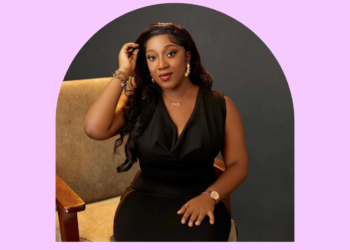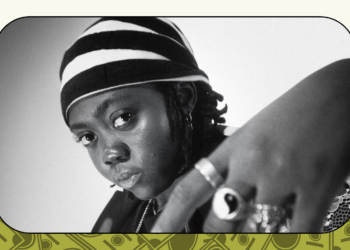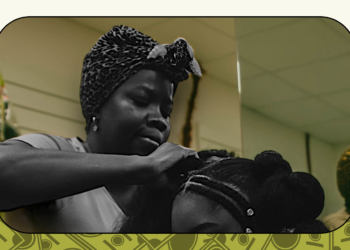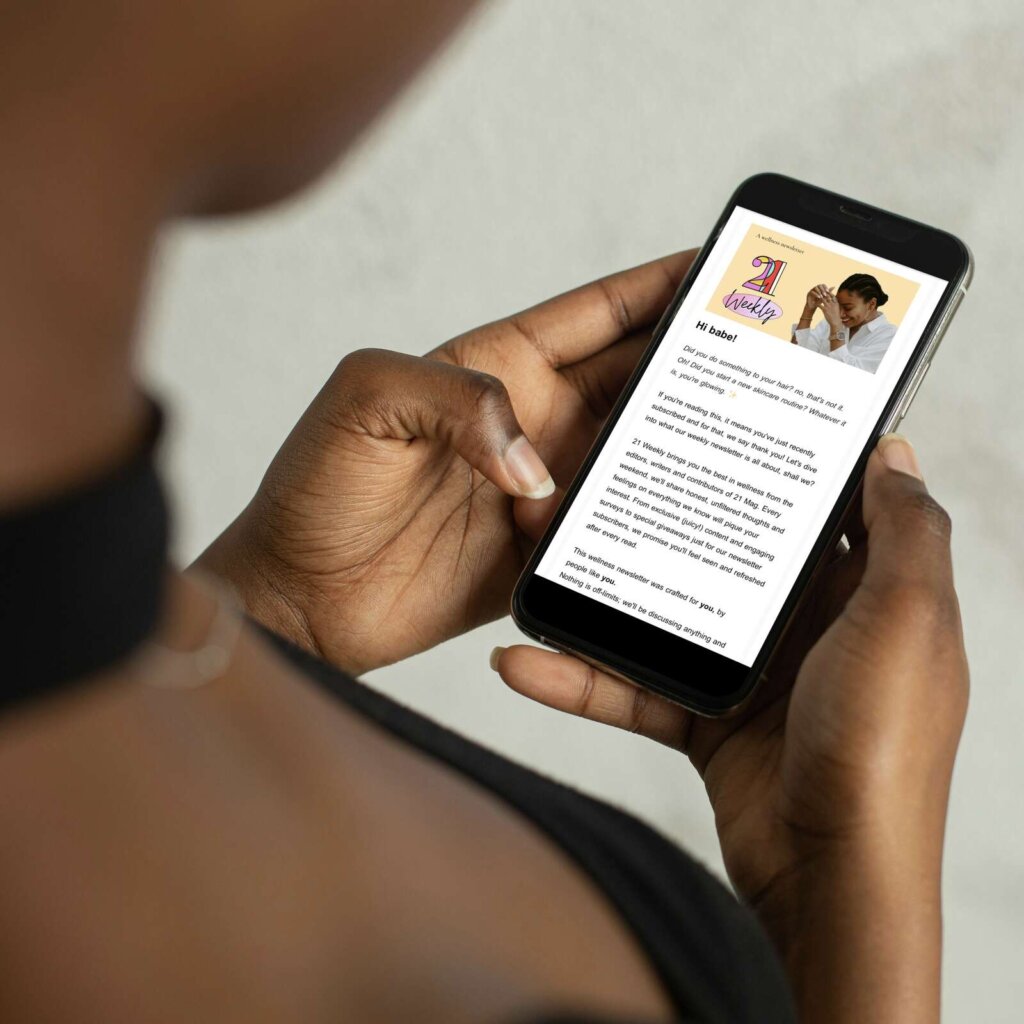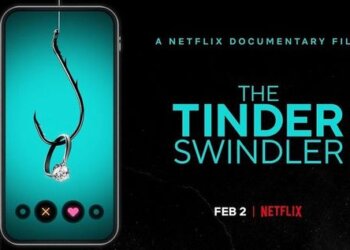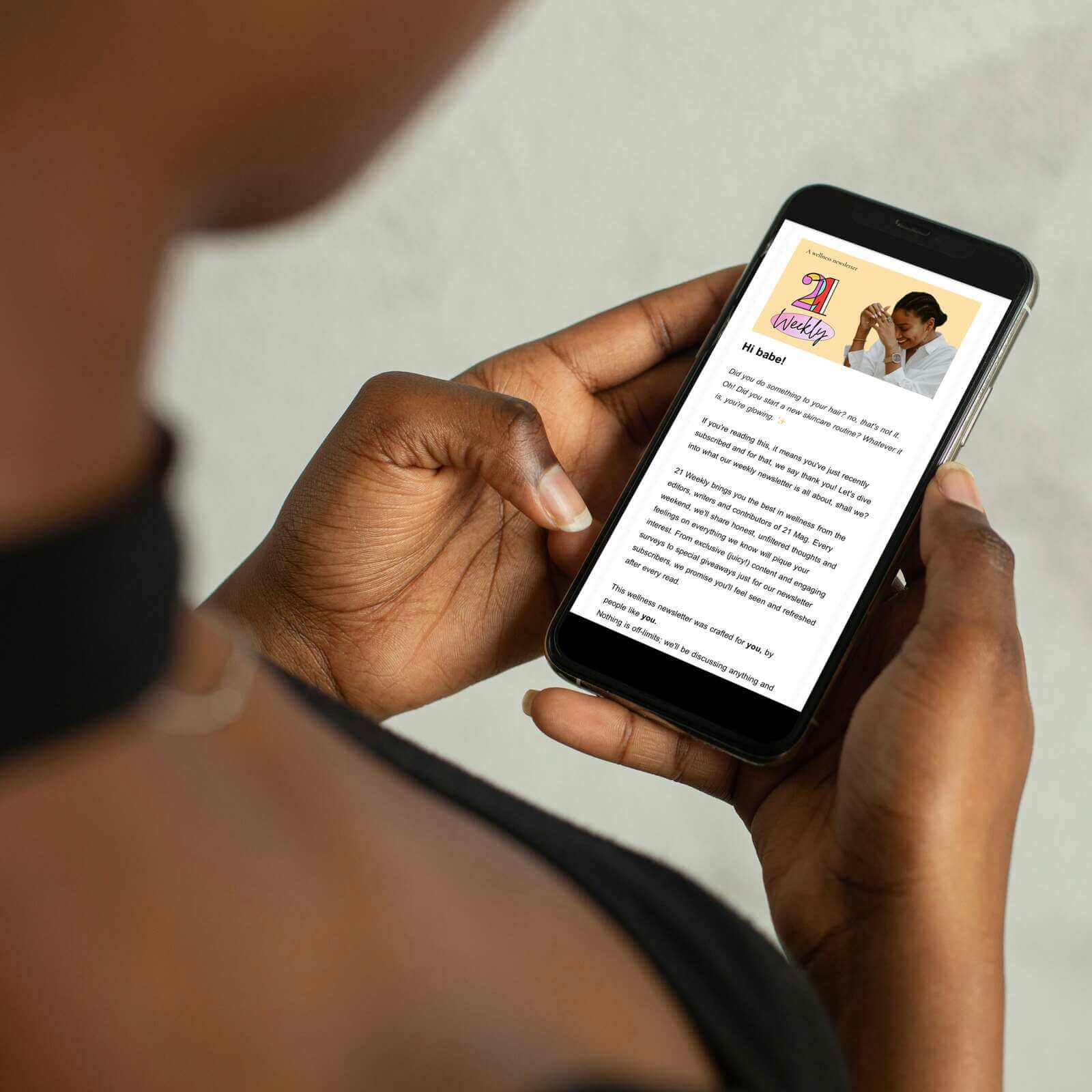No products in the cart.
Taking Up Space: 3 Women Talk About Switching Industries And Owning Their New Fields
Careers make up most of our adult lives and for most people; it goes beyond being a source of income to being their entire identity – a purpose or calling. Thankfully, our society has evolved to a point where university degrees no longer keep people in a chokehold demanding that if you spent a number of years studying one thing, then you must spend your entire life working in that field.
Whether it’s learning new skills to excel in the same field or switching to an entirely different industry, anything is possible. The truth, however, is that even though more people are changing career paths and dominating their fields, it is still a very scary process and requires a lot of bravery.
In this article, 3 Nigerian women talk about successfully switching their career paths, their process, struggles and lessons.
(@Jessica_xls) (@chimuanyadike) (@joy_ozoya)
Jessica Uwoghiren (@Jessica_xls)
Hi Jessica! So, What do you do and how has that been going?
I’m a data analyst. I started working towards this career change in September last year because I moved to a different country and I got this job in June this year. I’m enjoying working with new people and putting all the things I learnt into practice.
What did you study in University? Did you work in that field and for how long?
I studied Chemical Engineering in the university and then went on to get an Msc in Petroleum Engineering because I wanted to get into oil and gas which I did. I worked there for about 4 years before I decided to switch fields.
How did you know you didn’t want to go ahead with that and why did you choose your current field?
Leaving engineering was bittersweet for me but it was necessary. Working in engineering in a different country was not easy, so I read up on possible career paths and it was either Data Analytics or Project Management. I chose data because I had skill sets from my previous job that could fit into the role and even though I still had to learn a lot of things, I was excited to be in tech because of the opportunities and possibilities.
What was the first move you made towards the switch?
I’d say it was doing research and trying different courses. There is a plethora of courses available online and it can get overwhelming. So I tried, failed at it and tried again. I say failed because I started to learn at one point and couldn’t keep up so I stopped but I picked it up again later.

From the decision making, to learning, to making the full switch, walk me through the process; Difficulties you may have encountered, how long it took you and how you got help
Like I said, the first thing I did was research. I looked at what other people had done before me and tried to map out their path and follow it. What courses or certifications they took and stuff like that. You can find that information on their LinkedIn profile. One of the difficulties I had was getting stuck a lot. Learning a new course online is frustrating and you might want to give up. Having people to talk to who had done something similar really helped me. It took me about 5 months of intense learning before I got the courage to apply and get my first interview while working full time. I got a job after about 8 months.
What strengths, skills or qualities do you think helped you to excel? What did this process teach you about yourself?
I’d say discipline. I was working full time while trying to learn. The willingness to learn and apply what I learned also helped. One thing about starting something new is that if you do not apply the knowledge from these courses, you cannot tell if you know what you are doing. The thing I learnt about myself was my resilience. Once you put your mind to something, nothing can stop you.
Tell me about your experience getting a job in an industry were you didn’t have a “traditional” education
It was not so easy or straightforward. I probably sent out over 300 applications and then went through several multi-stage interviews. The job market is wild so you need to stand out. What helped me most was, I had done projects to show what I had learnt so it improved my chances and in some rare cases even got me referrals. Having a presentable and concise resume too.
Do you ever experience imposter syndrome? If yes, how do you deal with it?
Yes, I experience this every now and then. Sometimes I’m in a situation with people who know a lot more than I do and I want to beat myself up for not knowing something. There is no clear-cut way to handle this but I try to identify my weaknesses and deal with them and also learn from people around me.
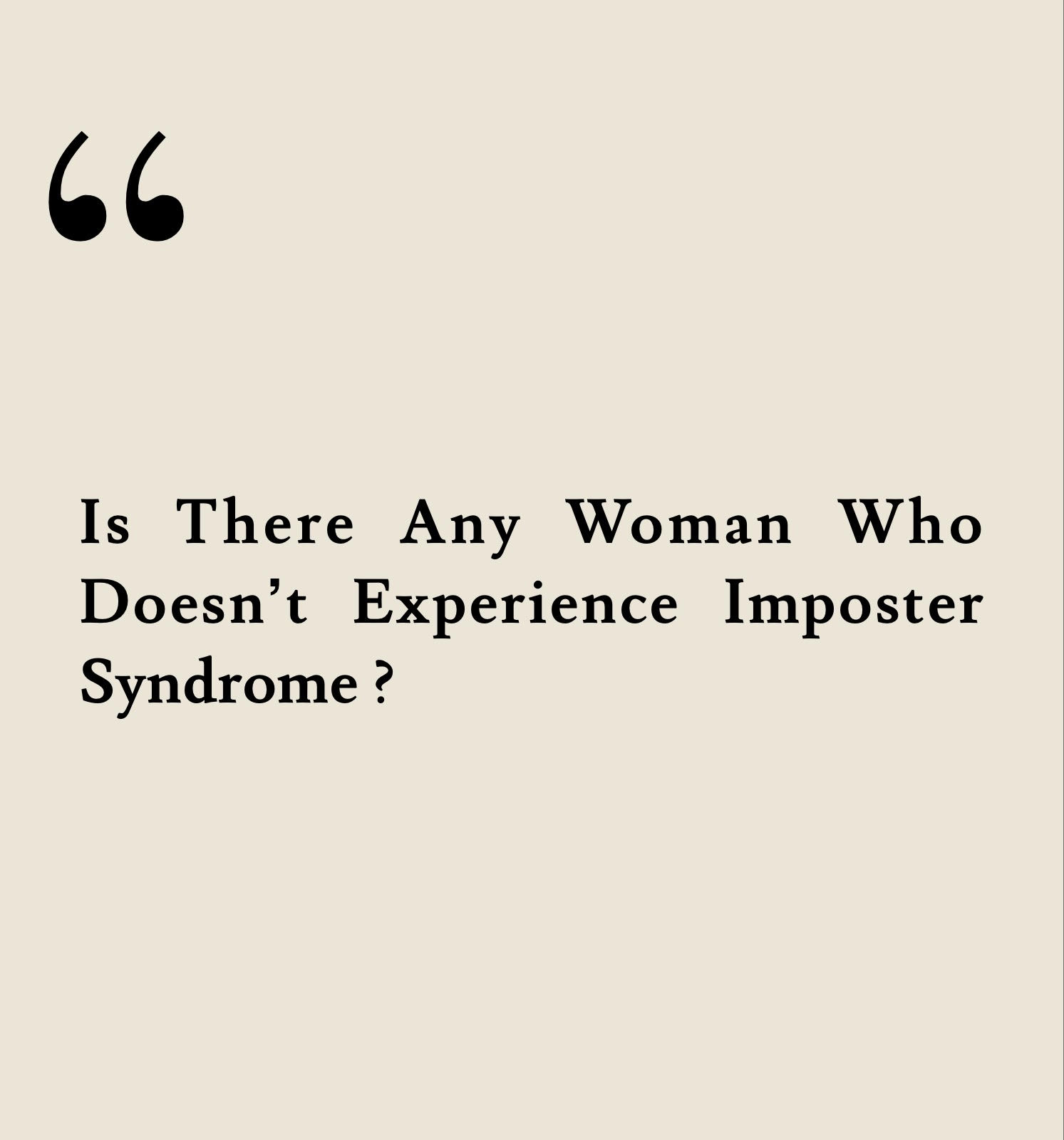
Will you ever go back to the industry you left? Do you have any regrets?
I have no regrets; I just miss my co-workers Lol. No I don’t think I’ll go back but never say never. The skills I have now can still be used in oil and gas but maybe not as an engineer.
What’s your advice to anyone looking to switch career paths?
I’d say do your research, that’s really important. Know what you are getting into and be sure that it is what you want. Having a support system like a group of people who are doing the same thing or a mentor will go a long way. Just go for it, all you need to do is start.
Joy Ozoya (@joy_ozoya)
Hi Joy! First things first, tell me what you do. Do you enjoy it?
I’m part of the merchant banking team at Union bank PLC. Before now, I worked as a support personnel for an engineering company. Yes, I thoroughly enjoy working here now. The experience here is exciting and challenging because this is an ever growing industry, I have to stay innovative and that really excites me.
What did you study in University? Did you ever work in that field?
I studied philosophy and religion in the university. That’s not what I wanted, it’s what UNIBEN gave me and I just stuck with it. No, I did not work in that field at all because let’s face it; the job opportunities are practically nonexistent in this country.

So you decided to move to another field?
For me, there was no other option really. I already regretted studying religion because of the stigma that people had created around “irrelevant courses” like religion and to make it worse, I graduated with a 2.2. I was scared about what my life was going to look like. For about 2 years of my life, I tried many things and doubted if I would have any chance at the corporate world because of what I studied.
Let’s talk about your process from the decision making, to learning, to making the full switch. How did that go?
The first thing I did was to understand myself and what I wanted. I started a business and soon realized that the whole idea of entrepreneurship held no appeal for me. It was monotonous. I wanted a 9-5 life. I started taking a professional certification course, CIPM, then I landed my first job as a front desk manager. I grew in that company until I realized I needed more. So, I quit my job and stayed at home for 2 months to focus on improving myself and just applying for jobs aggressively till I got my current one.
What strengths, skills or qualities do you think helped you to excel? And what did you learn about yourself in the process?
I’d say my biggest strength is being hard working because I understood that no one was coming to rescue me and I had nothing to fall back on. Omo! I cannot go into prostitution and I cannot also be broke. I had to be hardworking. I was ready to start from the bottom, I even sold food once.
What was your experience like, getting a job in a field were you didn’t have a “traditional” education?
My journey has been unique. Right from the front desk job, I had no real corporate skills; I mean I didn’t even know how to use Excel. The MD took a chance on me because he could see that I was eager to put in the work. My skills have piled up over time so moving to a banking role was not as hard as most of the skills were transferrable. I recently got to know that I was chosen because I was very specific on the path I wanted my career to take. The CIPM course and another one I’m working on showed I had a direction.
Do you ever experience imposter syndrome? If yes, how do you deal with it?
Is there any woman who doesn’t experience imposter syndrome? I experienced that a lot in this current role because I met so many intelligent young people. I’ve always dealt with it by reminding myself that I did not get here by chance, my skills brought me here so I have to own this space. Having an amazing boss really helps too.
Will you ever go back to the industry you left?
I should mention that ultimately, I want to end up working in HR. Religion is part of our everyday lives, it’s understanding the beliefs of others and that is the same way I view HR. So yes, I’ll be going back there in a way.
What’s your advice for anyone looking to switch career paths?
I’d say be clear about what you want and don’t stop until you get it. You are all you have.
Chimuanya Dike (@chimuanyadike)
Hi Chimuanya! What do you do and what do you enjoy about it?
I am a customer support executive for a tech startup. I enjoy my role because I get to be the intermediary between customers and the company, and ensure satisfaction on both sides. I’ve been here for 3 years and I’ve grown so much. It’s been great.
What did you study back in University And did you work in that field? If yes, for how long?
I studied Microbiology. After my service year, I went on to volunteer in a bottling company in hopes that it will pave a way for me to build a career in microbiology, but Nigeria had other plans.
So you just knew you had to switch. Why customer service?
Being a microbiology graduate, searching for roles in that field and not getting any feedback at all was enough for me to realize I needed to take another path. I’ve always had really good interpersonal and communication skills plus I had started taking content creation and social media management courses, so I then decided to go into a field were I could use those skills.
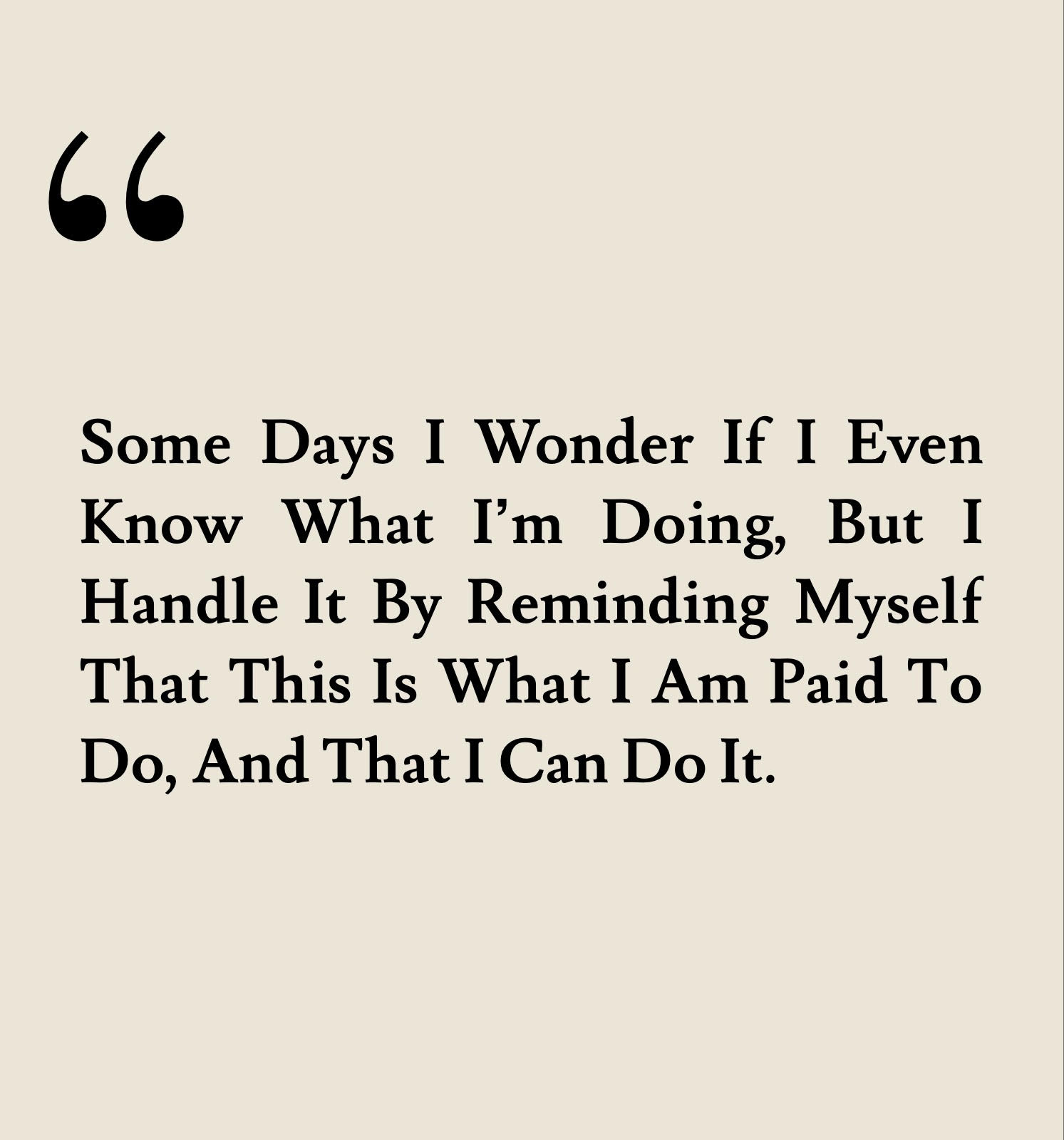
Let’s talk about the process, how did that go?
Like I said, the first move was taking online courses. Google and YouTube were my best friends. I was gunning for social media management or customer service roles so I took both digital marketing and customer service courses. I revamped my CV to highlight my skill sets. One of the things that have helped me is that I never stopped learning. At every point I always went back to do new courses that would propel me to the next level and I always asked my superiors for help and put in extra time on the job to learn something whenever necessary. I have moved from admin officer to content/social media manager for a tech company, to full on customer support for an even bigger tech startup.
Do you have strengths, skills or qualities that you think helped you to excel?
I am very enthusiastic about everything, especially learning. I’m always very interested in knowing what is going on and what others are learning. I’m very proactive too, if you don’t send for me, I’ll come by myself. A combination of all this is what has helped me to succeed in this path.
What was your experience like getting a job in a field were you didn’t have a “traditional” education?
The good thing about customer support roles is that your background does not disqualify you. As long as you have put in the work to learn some online courses, you are very eligible for an entry level position. In my first job, that was in 2019, we were trained on the job. At the end of the training, we were allowed to work on our own and ask questions when necessary. I’ve found that thoroughly researching the company and understanding their processes, mission and values has helped me ace interviews.
Do you ever experience imposter syndrome? If yes, how do you deal with it?
Yes! Some days, I wonder if I even know what I’m doing especially when I’m faced with extremely difficult tasks. I handle it by reminding myself that this is what I am paid to do and that I can do it. I also talk to my friends and loved ones and they always go out of their way to help.
Will you ever go back to the industry you left?
I don’t think I will ever go back to a microbiology lab. I am very passionate about the environment though. So I volunteer in some organizations that are focused on that. I think that’s how I keep in touch with my microbiology roots.
What’s your advice to anyone looking to switch career paths?
Please be very enthusiastic about learning, whether it’s from superiors, colleagues or subordinates. Also, choose a field that you love or enjoy at least. Burnout is real and it’s even worse when you are doing something you hate.

